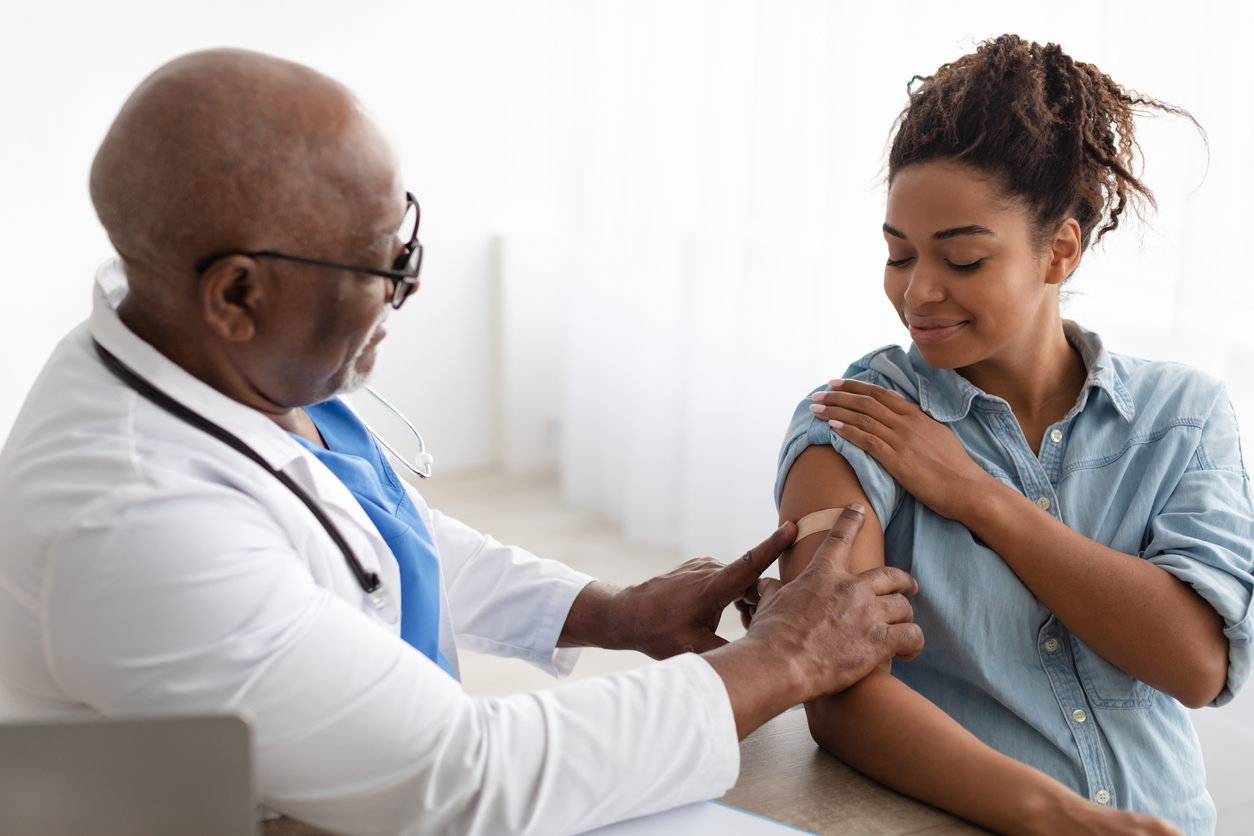Article
Read time: 4 min
Article
Read time: 4 min

Have you ever heard the expression, “an ounce of prevention is worth a pound of cure?” While it might just sound like another old-fashioned saying, it can often be true. One of the most important things you can do to protect your health, along with the health of your family, is to take preventive measures so you don’t get sick in the first place.
In addition to eating healthy foods, exercising regularly and other lifestyle choices you can make to help keep you feeling your best, staying up to date with recommended vaccines is another good way to ensure that you are doing all you can to stay in good health. For adults aged 65 and older, vaccines are a particularly important piece of the health puzzle, as it can be more difficult for your body to fight off infections naturally as you age.
August is National Immunization Awareness Month, and there’s no better time to learn more about the importance of vaccines and how they can help prevent us from getting sick. In this article, we’ll explore some of the ways that vaccines can help to preserve your health and quality of life, both in the short– term and the long– term. We’ll also discuss the five vaccines that adults aged 65 and older should consider getting to help prevent certain infectious diseases.
Everywhere we go, germs are all around us. Each day, bacteria and viruses follow us home from the grocery store, the beauty salon and even our friends’ houses. Good hygiene practices, such as frequent handwashing, along with proper nutrition and adequate sleep, can go a long way toward helping us avoid getting sick, but we are still susceptible to becoming infected. Vaccines can help our immune systems fight off common viruses such as influenza, pneumonia, shingles and COVID-19 more effectively.
As we age, our immune systems weaken, making it harder to fight off these infections naturally. Moreover, people aged 65 and older who contract certain preventable diseases can be at increased risk of complications such as long-term illness, hospitalization and even death in unvaccinated seniors. An estimated 45,000 adults die annually from complications due to vaccine-preventable diseases.
Getting vaccinated against these common viruses can help increase your chances of staying healthy, both now and in the future.
So, how can you protect yourself and your family from getting sick? It all starts with visiting your primary care provider to find out which vaccines are recommended for you. Because certain viruses, such as the flu, tend to be more prevalent in the winter months, your provider will likely recommend the vaccines for these illnesses in late autumn for maximum protection. Other vaccines can be administered at different times of the year.
There are five vaccines that are especially recommended for people aged 65 and older. Consider receiving these vaccines for maximum protection against common infections:
–Influenza (flu)—one vaccine per year, mostly given in the late fall and winter months.
–Pneumonia vaccine—either one PCV20 vaccine or one dose each of PCV15 and PPSV23 vaccines.
–Shingles—two vaccines given two to six months apart.
–Tetanus, diphtheria and pertussis (TDaP)—one vaccine plus a booster every 10 years.
–COVID-19—Two to three doses of the primary vaccine, plus a booster as recommended.
No matter what stage of life you are in, taking preventive measures, such as getting vaccinated, is always the best way to stay healthy and preserve your quality of life.
If you tend to put off getting vaccinated due to a fear of needles or if you worry about the potential side effects of vaccines, you’re not alone. According to the Centers for Medicare & Medicaid Services (CMS), as many as one in four adults have a strong fear of receiving injections.
In addition, 40% of respondents to a 2020 AARP survey who reported being unlikely to get a flu shot said they had concerns about the possible side effects of the vaccine. Talk to your healthcare provider about any concerns that might be holding you back from receiving the vaccines you need to stay healthy, so you can be sure you’re making the best decision for you.
Sure, getting vaccinated is no fun, but the payoff of preventive care can be huge. By keeping up with annual wellness visits, screenings and vaccinations with your primary care provider, you can have peace of mind that you’re doing everything you can to ensure a happier, healthier future.